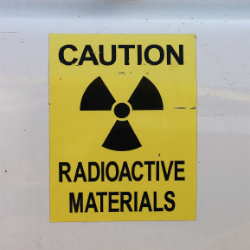Put your radiation worries to rest, says MUHC Radiation Safety Officer

Monday, March 28, 2011 - 11:35
Nuclear meltdown in Japan will not affect Canadians
By Pamela Toman
The nuclear crisis in Japan following the massive earthquake and tsunami, coupled with the pervasive media attention surrounding the situation at the stricken Fukushima nuclear power plant is worrisome, however, Christian Janicki, Radiation Safety Officer at the McGill University Health Centre (MUHC) says the nuclear meltdown poses no risk to Quebecers.
Responsible for managing nuclear safety licenses at the MUHC, as well as the acting contact person with the Canadian Nuclear Safety Commission, Janicki’s role is to ensure public and environmental safety in relation to radiation exposure. Radiation is used routinely for diagnostic imaging and therapeutic usage at the MUHC. In order to distinguish fact from fiction on the subject, we asked him to answer a few frequently asked questions.
Q: How much is too much radiation?
The scientific unit of measurement for a radiation dose, commonly referred to as effective dose, is the millisievert (mSv). The average full-body CT scan, which is used at the MUHC for diagnostic purposes, will expose a patient to roughly 25 millisieverts of radiation, which translates into a very low risk, Janicki asserts. Inside the Fukushima plant, the radiation levels have reached the equivalent of one CT scan per hour, according to Japan
“Those who are most at risk of absorbing higher levels of radiation are really the Japanese workers at the stricken Fukushima nuclear plant, and those living within 20 to 30 kilometres of the reactors,” he says, “Reported levels of radiation around the nuclear power plant have been around 100 to 200 millisieverts per hour, but people must be aware that these levels and the risks associated with them only apply to those in close proximity to the nuclear site.”
Q: Should people in
No, says Janicki, echoing statements made by Canadian health officials who have emphasized that there is no risk of radiation poisoning in Canada Quebec
Some Canadian pharmacies have reported an increased number of customers asking for potassium iodide, which is thought to help protect against radiation sickness. One of Canada Kendall has said it would take five or six days for any radiation to cross the Pacific, and by that time it would have dispersed into the atmosphere.
In addition, taking potassium iodine pills can be very hazardous, as some individuals may develop severe allergic reactions, which can even lead to anaphylactic shock. Potassium iodide should therefore only be taken if absolutely necessary as determined by public health authorities in case of a declared emergency.
Q: Do you have any advice for parents who are worried about radiation affecting their children?
People should remain calm and avoid worrying about radiation poisoning altogether, says Janicki. “There is no reason to believe that Canadians will need to worry about taking any precautions anytime soon,” he affirms.
For more information about radiation, please visit some of the resources below:
Radiation Safety Institute of Canada – FAQs
No radiation harm in Canada, Harper says (CTV News)


